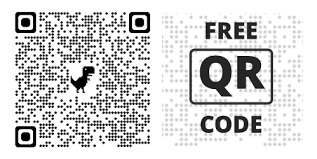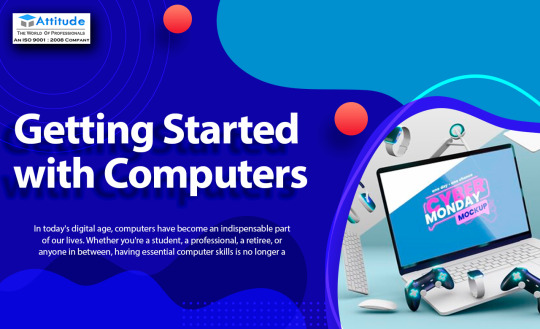Text
Module 2 -
Email types
Government - .gov
Education Institutions - .edu
Armed Forces/Military - .mil
Nonprofit organizations - .org
1 note
·
View note
Text
Advantages and disadvantages of email
Advantages and disadvantages of email
Definition of email:
Email is an electronic message sent from one place to another through the internet. Emails can be sent from any mobile, tablet, laptop, desktop computer or online connected device.
An example of an email format is [email protected] where an example is the name of the person or any word that identifies the user. gmail.com is the domain name of the email provider.
By using…

View On WordPress
1 note
·
View note
Text
Vishing

What is a Vishing Scam?
Vishing word is a mix of "voice" and "phishing." In cyber security speech, it's a kind of phishing attack that includes a malicious actor acting like a dependable substance over a call to bamboozle people into uncovering individual subtleties, for example, password, secret key, or credit card number.
The essential usual methodology here is utilizing voice correspondence to fool people into giving delicate data. This tricky procedure frequently includes social engineering techniques to imitate real elements, making a façade of trust that works with the extraction of confidential data.
This can happen over a landline, cell network, or a Voice over Internet Protocol (VoIP) framework. Contingent upon the data got from the individual, cybercriminals can then start various fraudulent tactics, for example, counterfeit expenses for PC fixes or antivirus programming.
Vishing vs. Smishing vs. Phishing
Vishing is often confused with widely prevalent crimes – phishing or even smishing. It is a form of phishing attack only. However, there are subtle differences.
Difference between Vishing and Phishing
The essential differentiation lies in the medium of communication. Phishing depends on electronic communication, regularly emails or messages, while vishing use voice communication over calls. The previous invades inboxes, while the last option penetrates discussions.
Difference between Vishing and Smishing
Smishing, meaning "SMS" and "phishing," involves phishing attacks via SMS or text messages. The difference between vishing and smishing lies in the communication channel – vishing operates through voice calls, while smishing infiltrates through text messages.
For more information visit: https://rmail.com/
1 note
·
View note
Text
A lot of folks are responding to the whole Reddit situation by calling for the return of decentralised forums, and I think it's important to remember that, contrary to certain popular narratives, the reason early 2000s forum culture has fallen by the wayside is not because people are Just Lazy. Certainly, ease of use is part of it, but a much larger part of it is how vulnerable self-hosted forums are.
Basically, the problem is that even the largest and most carefully managed self-hosted forums can be rendered unusable more or less indefinitely by a single sufficiently determined hostile actor. This can take the form of both attacks on the forum's social infrastructure (i.e., via sock-puppet accounts, botting, organised "raids", etc.) and attacks on its technical infrastructure (i.e., via hacking, DDoS, etc.). In either case, a self-hosted forum has no real defence, and the majority of decentralised forum communities survive only by virtue of their relative obscurity; once a self-hosted forum manages to attract the attention of That One Guy who's willing to devote his life to shitting the place up over some microscopic slight, it's effectively game over.
Right now, there are essentially only two mitigation strategies:
Gathering huge numbers of communities under a single, massively centralised technical infrastructure that's simply too large and robust for any one hostile actor to bring down; and
Hardening the community's social infrastructure either by going private and invite only (i.e., the Discord approach), or by making use of a vast centralised pool of volunteer labour to aggressively enforce community standards (i.e., the Reddit approach).
To be clear, these are not intractable problems; other solutions may well exist. However, any proposed plan for bringing decentralised public forums back needs to address them. If you're going in operating under the assumption that forums have become marginalised simply because corporations are evil and people are lazy, you're setting yourself up to learn the hard way why self-hosted forums no longer seem to be capable of growing beyond a certain point.
8K notes
·
View notes
Text
What are public IP addresses versus private?
So you know what an IP address is and how you would typically get one, how can you find out what yours is?
First let’s start with the difference between a private and public address.
The reason you usually have two different IPs is because of the realization in the 1990s that with all of the devices* connecting to the Internet they were going to run out of IPv4* addresses.
A solution to this was something called NAT* which meant many computers could have one IP address.
A good example of NAT is your home configuration. Your laptop probably has a private IP address and usually starts with 192.
But if you go to DuckDuckGo* and type in “what is my ip” it will likely not start with 192. That is your public IP address. All the devices that connect to your cable modem appear to have that address to the rest of the world and that address is unique.
Other devices on the Internet can see that IP address and it is typically the address assigned to you by your ISP*
I made a little drawing of NAT in action.

More about the importance of knowing and disguising your public IP later.
*devices can be anything from phones, to printers, to tablets, to laptops, to Alexa to Nest cams.
*IPv4 is the older standard of IPs that usually has 4 segments, known as octets. An IPv4 address looks like 192.168.0.1 while an IPv6 address has more characters.
*NAT stands for Network Address Translation
*More about why to use DuckDuckGo and not Google later.
*ISP is Internet Service Provider. Comcast, AT&T home, Frontier, TalkTalk, Virgin are all examples of ISPs.
1 note
·
View note
Text
As with spam and phishing scams, remember to trust your best judgment. You should never send someone money just because you've received an email request. You should also never download email attachments you weren't expecting because they might contain malware that could damage your computer and steal your personal information.
If you're interested in getting more information on a particular topic, you may want to consider checking out a website that provides relevant and reliable information. This will help you stay informed and up-to-date with the latest news, trends, and developments in your area of interest.
I just got another one of those phishing emails where it pretends to be a confirmation of a subscription you never signed up for and tries to trick you into providing personally identifying information for "confirmation purposes" when you attempt to cancel, but:
a. this one is for a weekly grocery delivery service, of all things; and
b. the fake shopping list contains nothing but ham.
I have been fraudulently subscribed to ham.
9K notes
·
View notes
Text
Best QR Code Generators of 2022
Get to know the top best QR Code Generators of 2022 from our website. Avail a simple guide from FormBot, the free QR Code maker to know the benefits and features of QR Codes!

1 note
·
View note
Text

HEY GUYS THE FORUM IS UP!!!
basically, due to social media being in shambles now and changing in front of our eyes (for the worse may i add), i've seen that the only solution to it is to take the internet back. with elon musks fits of childish rages, with terfs, racists, right-wingers etc populating social media, i've come to an idea to make a forum for all the artists, writers, musicians, or just people who want to hang out on it. you don't have to be an artist or anything to simply come and hang, roleplay, or just discuss media!
the information on social media is disappearing. however, forums are long-lasting. i've visited the other day a forum i made 12 years ago, and yk what? all my old writing, my posts... are still there. nothing has been lost.
so, consider joining this forum. let's make a little community, a more lasting one, one not ran by algorithm.
please join the art anarchy today!
542 notes
·
View notes
Text
youtube
0 notes
Text
Getting Started with Computers: Essential Knowledge for New Users

Introduction:
In today's digital age, computers have become an indispensable part of our lives. Whether you're a student, a professional, a retiree, or anyone in between, having essential computer skills is no longer a luxury but a necessity. If you're new to the world of computers and are looking to kickstart your journey, this blog will provide you with the fundamental knowledge you need to get started. We'll explore computer basics for beginners and essential computer skills that will set you on the right path.
Understanding the Basics
Before diving into the nitty-gritty of essential computer skills, let's start with some fundamental computer basics for beginners.
1. Hardware and Software
Computers consist of two main components: hardware and software. Hardware refers to the physical components of a computer, like the monitor, keyboard, CPU, and more. Software, on the other hand, encompasses the programs and applications that run on the computer.
2. Operating System
An operating system (OS) is the software that manages the computer's hardware and provides a platform for other software to run. Common examples of operating systems include Windows, macOS, and Linux.
3. User Interface
The user interface is what you interact with when using a computer. This includes the desktop, icons, and windows. Understanding how to navigate and interact with the user interface is vital for any computer user.
Essential Computer Skills
Now that you have a grasp of the computer basics, let's delve into some essential computer skills.
1. Typing Skills
Being able to type efficiently is a fundamental computer skill. Learning to touch type will make your computer usage more enjoyable and productive. There are many online typing tutorials and games that can help you improve your typing speed and accuracy.
2. Internet Basics
The internet is a vast resource, and knowing how to navigate it is crucial. You should be familiar with web browsers like Google Chrome, Mozilla Firefox, or Microsoft Edge. Learn how to perform searches, bookmark websites, and stay safe online.
3. File Management
Understanding how to create, organize, and manage files and folders is essential. You should be able to save and retrieve documents, photos, and other files on your computer.
4. Email Communication
Email is a primary mode of communication in the digital age. You should know how to create and manage an email account, send and receive emails, and attach files.
5. Basic Troubleshooting
No computer user is immune to occasional issues. Learning basic troubleshooting techniques, such as restarting your computer, clearing browser cache, or updating software, can save you a lot of frustration.
6. Security Awareness
In today's digital landscape, cybersecurity is crucial. Be aware of the importance of strong, unique passwords, keeping your operating system and software up to date, and being cautious of phishing emails and suspicious websites.
7. Software Applications
Explore essential software applications like word processors (e.g., Microsoft Word or Google Docs), spreadsheets (e.g., Microsoft Excel or Google Sheets), and presentation software (e.g., Microsoft PowerPoint or Google Slides). These applications are commonly used for work, school, and personal projects.
Where to Learn More
If you're looking to expand your knowledge and skills, there are various ways to do so. You can find online tutorials, video courses, and community college classes dedicated to computer basics for beginners and essential computer skills. Don't hesitate to reach out to friends or family members who are tech-savvy for guidance and support.
In conclusion, getting started with computers and gaining essential computer skills is an investment in your future. Whether you want to boost your employability, stay connected with loved ones, or simply navigate the digital world more effectively, these skills are invaluable. So, take the first step, embrace the world of technology, and become a confident and proficient computer user.
2 notes
·
View notes
Text
Never Type Again: How QR Codes Revolutionize WiFi Access

In today's digital age, convenience and efficiency are paramount. One area where this is especially evident is WiFi access. Traditionally, connecting to a WiFi network required manually entering a password, a process that could be time-consuming and prone to errors. However, with the advent of QR codes, the landscape of WiFi access has been revolutionized. This article explores how QR codes have transformed the way we connect to WiFi networks, making the process simpler and more seamless than ever before.
The Power of QR Codes
Unlocking Effortless Connectivity
QR codes, short for Quick Response codes, are two-dimensional barcodes that can be scanned using a smartphone or a dedicated QR code reader. These codes store information in a visually readable form, often linking to websites, product details, or contact information. When it comes to WiFi access, QR codes eliminate the need for manual input of network credentials, streamlining the connection process.
Simplifying WiFi Access
Bid Farewell to Password Hassles
Gone are the days of painstakingly typing complex passwords, trying to avoid mistakes, and waiting for authentication. With QR codes, connecting to a WiFi network is as simple as scanning a code. Instead of struggling to enter lengthy passwords, users can effortlessly scan the QR code displayed by the network provider, and within seconds, they are granted access to the network. This not only saves time but also reduces the frustration associated with mistyped passwords.
Enhanced User Experience
Seamless Integration in Various Settings
QR codes have found their way into a wide range of public spaces, such as cafes, airports, hotels, and shopping centers. By leveraging QR codes for WiFi access, these establishments enhance the overall user experience. Visitors no longer need to seek out passwords or approach staff members for connectivity assistance. With a simple scan, they can enjoy uninterrupted WiFi access, empowering them to stay connected and productive on the go.
Efficiency and Security
Fast and Reliable Connectivity
QR codes provide a fast and reliable method of connecting to WiFi networks. Users can skip the cumbersome process of typing out passwords, allowing for quicker network access. Additionally, QR codes can be generated with secure encryption, ensuring that only authorized users can connect to the network. This enhances the security of the network, reducing the risk of unauthorized access or misuse of the WiFi connection.
Implementation and Accessibility
QR Codes for All
The adoption of QR codes for WiFi access has gained significant traction in recent years. Most modern smartphones are equipped with built-in QR code scanners, eliminating the need for additional apps. This widespread availability ensures that anyone with a smartphone can effortlessly connect to WiFi networks using QR codes, making it an inclusive and accessible solution for all users.
Conclusion
QR codes have revolutionized the way we connect to WiFi networks, offering a seamless and efficient alternative to manual password entry. By simplifying the authentication process and enhancing the overall user experience, QR codes have become a valuable tool in various settings, from public spaces to private residences. As the world continues to embrace the power of QR codes, WiFi access has become more accessible, secure, and convenient than ever before. So, the next time you encounter a QR code for WiFi access, embrace the ease it brings and bid farewell to the days of typing passwords.
Check out: Create QR Code for WiFi Network Name and Password - FREE
1 note
·
View note
Text

"Please scan this QR code to access my exclusive email address, where you can ask me any questions you may have."
Create your own QR code using the Link Above.
0 notes
Text
Unveiling the Power of NFC Technology: Transforming Connectivity in the Digital Era
Learn how NFC technology is revolutionizing digital connectivity, exploring its applications and impact in the modern era.
Blog Link: NFC Technology
1 note
·
View note